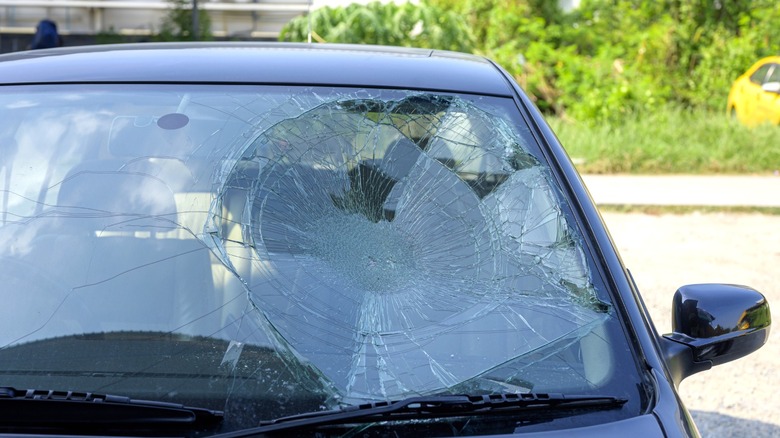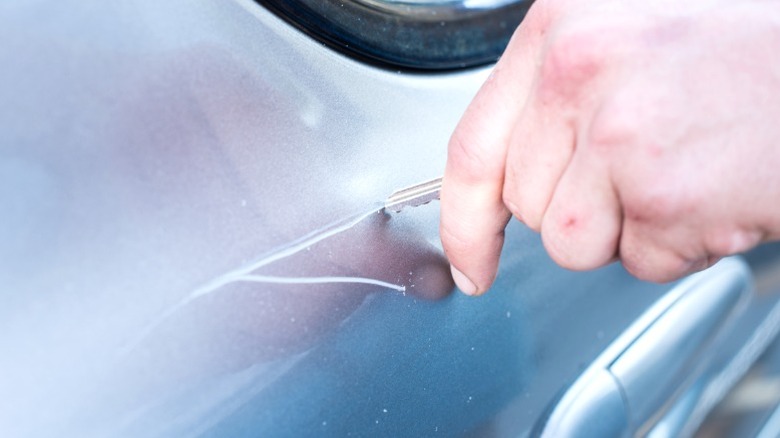The Big Difference Between Property Damage And Vandalism Explained
The nuances between "property damage" and "vandalism" may not feel too important right after you suffer a loss, but when the dust settles, the details can impact everyone involved. For those causing the damage, it affects their liability and the punishment they face. Meanwhile, the victim's experience with their insurer when filing a hazard insurance claim may hinge on the exact definition. No matter where you fall in the equation, you have to appreciate and understand the details. We talked with consumer law attorney Danny Karon in a House Digest exclusive to better grasp what these terms mean and why the distinction matters.
According to Karon, property damage is a broader term. It relates to any harm that happens to somebody's property by someone else without the owner's approval, either through negligence or malice, or a natural event – such as the kind of damage your home might experience from a flood. Property damage becomes vandalism when you add intent. "Not all property damage is vandalism, but all vandalism is property damage. That's because vandalism is defined as the willful and malicious injury or damage to another person's property," Karon states. Unlike damage that might occur during a theft or burglary, vandalism is done simply for the sake of causing damage. "Property damage would be falling against a parking meter and loosening its mooring. Vandalism would be intentionally wresting the parking meeting from its mooring because you wanted to do damage to it."
Vandalism versus property damage, and why it matters
Vandalism is one type of property damage, but the intentionality of it makes it more consequential for the offender. A car accident from a driver error will be a civil matter that mainly concerns insurance companies. By contrast, a case like a rock thrown into your living room window would entail not only restitution for the damage to the home but also a misdemeanor or felony charge for the person committing the crime. "If you suffered property damage, you should contact your insurer. If you suspect vandalism, you should contact the police," Danny Karon explains, speaking exclusively with House Digest.
Property damage of any kind is one of the main reasons to have homeowner's insurance, but insurers also have ways to recoup their losses. "If you own property that has been damaged and you have insurance, the damaged property should be covered. Whether your insurer wants to seek subrogation (or reimbursement) from the wrongdoer is a different question," Karon says. "And if vandalism was involved for which criminal consequences arose, this could aid your insurer in its subrogation effort."

